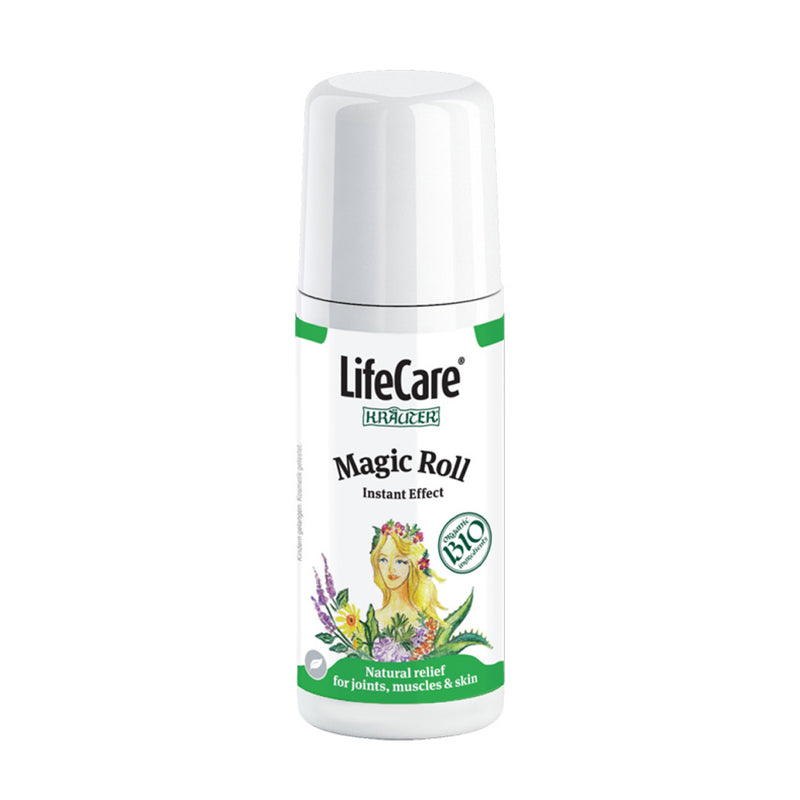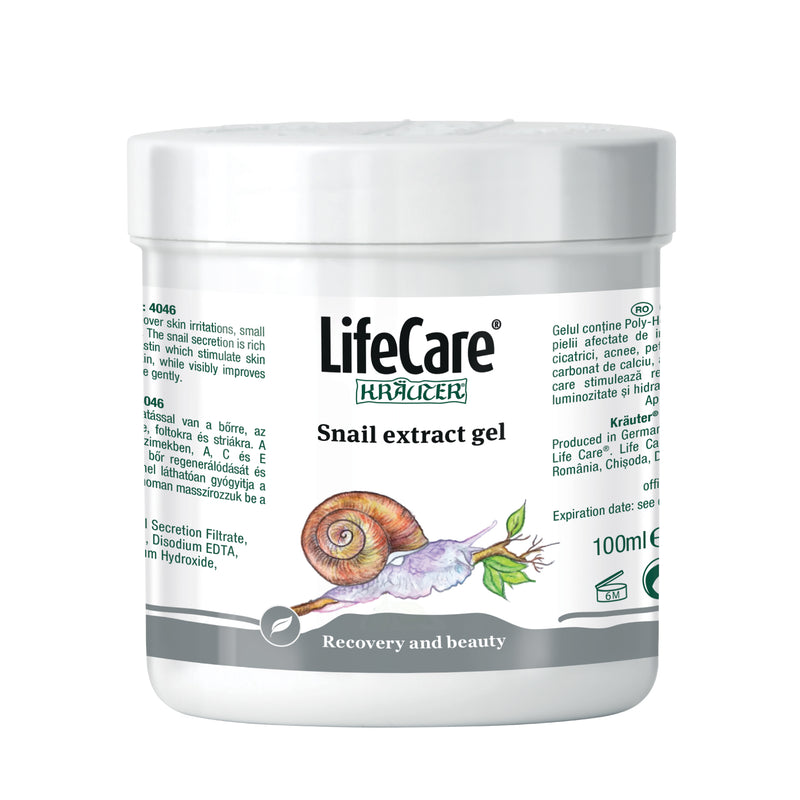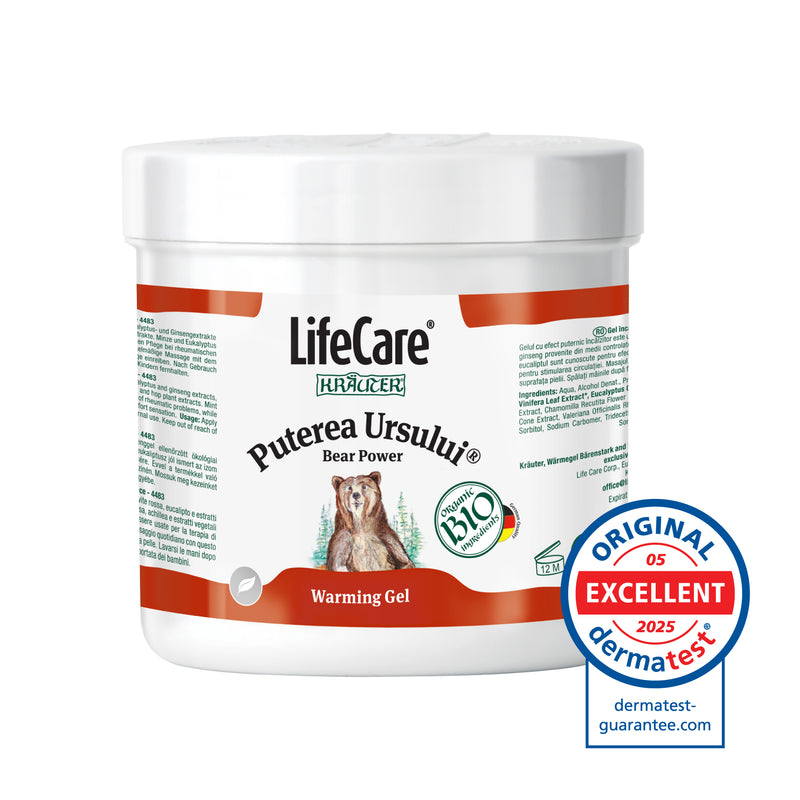A powerful immune system is essential to keep us healthy and to protect us against infections. In adults, maintaining and improving the functioning of the immune system involves the adoption of healthy practices and habits, besides the introduction of natural adjuvants (plant supplements, with organic ingredients).
Proper nutrition, regular physical exercises, sufficient sleep, stress management and avoid harmful habits (smoking and excess alcohol) are all essential for supporting immune function.
What does the article contain?
In this article, we will explore the following topics:
1. How the immune system works
2. Diseases that may occur against the background of a low immune system
3. Ways in which the immune system can be increased in adults (healthy lifestyle, natural dietary supplements)
4. Conclusions and product recommendations
1. How does the immune system work?
In order to take care of our immune system, we must know how it works. It protects us against pathogens and other threats both internal and external. There are several physical barriers that form the first line of defense of the immune system:
- skin: acts as a barrier against substances considered foreign (pollution, free radicals, bacteria, viruses, fungi, etc.)
- ciliated epithelial cells and mucous membranes: capture and eliminate pathogens and prevent the body's disease
- mucosa blanket: retains microbes and prevents them from entering the body (for example, the mucus located in the airways prevents pathogens from reaching the lungs).
When these barriers are outdated, the immune system comes into action to defend the body. The immune system has two main components: innate immunity and adaptive immunity.
Increased immunity includes:
Leukocytes: white blood cells attacking pathogens.
Cell responses against viral infections.
Complementary proteins: circulate in the blood and help eliminate microbes.
Adaptive immunity takes control if innate immunity cannot completely eliminate threat. It includes:
- T and B cells: recognize specific antigens on the microbes surface.
- Generation of antibodies: neutralizes and destroys pathogens.
- Recruitment of other immune cells: which are called for help to eliminate the threat.
Adaptive immunity is slower at first, but it is specific and improves every time the body meets the same pathogen (such as the influenza virus).
The immune system amounts to a complex network of physical barriers and cellular and molecular mechanisms that work synergistically to keep us healthy and to protect us against infections.
2. Diseases that may occur against the background of a low immune system
The immune system plays a crucial role in protecting the body. When it is compromised or weak, the body becomes more susceptible to a variety of conditions. Here are some of the ones that can occur against the background of a low immune system:
- Influenza and cold: people with low immunity are more prone to contracting viral infections such as flu and cold. These infections can be more severe and can take longer than usual, in the case of a person with a strong immune system.
- Urinary tract infections (ITU): Low immunity can make the body more vulnerable to urinary tract infections, such as cystitis or pyelonephritis. Bacteria infections such as e-coli become more common and if not treated properly, they can be chronic.
- Reactivation of herpes infection: people who have in the past have infections with herpes virus, such as oral herpes or genital herpes, can experience reactivation of these infections when the immune system is weakened.
- infections of the respiratory system: bronchitis, pneumonia and other respiratory infections can be more common and severe in people with low immunity.
- infections with Candida albicans: A weakened immune system can allow excessive proliferation of the Candida albicans fungus in the body, causing infections, such as oral candidiasis or vaginitis.
- Psoriasis: This inflammatory skin condition can be exacerbated by a weakened immune system, because the immune system can be hyperactive and can attack their own skin cells.
- intestinal transit disorders: people with low immunity may have an increased risk of developing intestinal disorders, such as irritable bowel syndrome or inflammatory intestinal disease.
- infections with opportunistic germs: certain germs, such as toxoplasma gondii, can cause severe infections in people with low immunity.
- Inflammation and infection of the internal organs: a low immune system can make the body more vulnerable to inflammation and infections of the organs, such as liver or kidney.
- Insomnia: sleep problems, such as insomnia or inability to have a qualitative sleep, can be more common in people with low immunity. They can negatively affect the general health and the ability to fight infections.
- General state of exhaustion and fatigue: a weakened immune system can lead to a general state of constant exhaustion and fatigue, even after proper rest.
- Anemia: People with low immunity may be more prone to the development of anemia, because the immune system can affect the production of red blood cells.
A low immune system can have significant consequences on the state of health and can make the body more susceptible to a variety of diseases and infections. It is important to pay attention to the symptoms from the beginning and to consult a specialist for appropriate evaluation and treatment.
3. Ways in which the immune system can be increased in adults (healthy lifestyle, natural dietary supplements)
In order to maintain a strong immune system and prevent different conditions associated with its weakening, adults must adopt a number of healthy habits. Keep in mind that nothing is impossible to achieve. It starts with small steps, but pays special attention to each aspect:
Stress reduction: chronic stress can weaken the immune system, making it more susceptible to diseases. Balance your personal life with the professional life, make time for relaxation and hobbies, spend time in nature and you will see the difference.
Quality sleep: The appropriate sleep is essential for the optimal functioning of the immune system. Try to have a constant sleep program and make sure you sleep in a quiet, dark and cool environment. Avoid electronic screens before bedtime (at least one hour) and set a relaxing evening ritual (which can include a relaxing bath or aromatherapy).
Exercises: Moderate and regular physical activity can stimulate the immune system by increasing the level of white cells and antibodies. Physical exercises help to improve circulation and reduce stress hormones. Establish an exercise program that includes at least 30 minutes of physical activity at least 2-3 times a week.
Healthy eating: the balanced and rich diet in nutrients is crucial for an immune system that works in optimal parameters. Consume many colored fruits and vegetables, which are rich in vitamins and antioxidants. Include in the diet fermented or probiotic foods to maintain intestine health, an important component of the immune system. Also, drink enough water every day.
By adopting these healthy habits, you will support the optimal functioning of the immune system and reduce the risk of illness.
A complementary help is vaccination. Vaccination is an important subject and often debated in the context of public health. Vaccines have shown that they offer protection against serious conditions and can help prevent infections. Many studies show that they are effective in reducing the incidence of diseases and have contributed to the eradication or control of infectious diseases, such as polio or measles. They contribute to the immunization of the body and should be taken into account, in the case of adults, in cases of flu, viruses, for protection against HPV, hepatitis A, hepatitis B, tetanus, etc.
If you face an infection, it is important to rest and hydrate. Consume hot soups and ginger or chain teas, to help reduce the associated symptoms. Supple the intake of vitamins and minerals with the help of natural dietary supplements as Vitamin C., Vitamin D., Vitamin E., Vitamin B6 or zinc. Also, quercetina, white willow extract, echinacea, propolis, milk milk - are ideal for relieving the symptoms of influenza and cold and strengthening the immune system.
For respiratory congestion, use a humidifier or steam inhalation. Essential oils, such as eucalyptus or oregano, they can help decongestion if used in aromatherapy. Nasal irrigation with saline can clean sinuses and reduce irritations. If you suffer from sore throat, a bio -yellow spray can be of great help due to its regenerating and healing role.
4. Conclusions and product recommendations
Numerous studies report that the correct balance of vitamins, minerals and antioxidants is vital for the development of an effective immune response that can minimize the risks associated with viral and bacterial infections.
In order to strengthen the immune system in adults, it is ideal to get from your diet all the vitamins and minerals that help you in this regard. But if your diet is not enough, you can introduce natural dietary supplements in your routine such as: vitamin D, vitamin, zinc, probiotics, garlic, echinacea. All have the role of "moving" the immune system, they have anti -inflammatory, immunoregulatory and antioxidant properties.
Our products, which you find under your own brand Life which are carefully designed and care for you and nature. We are the first 100% Romanian Bio company, with an experience in the field since 2005.
In addition to the quality national and international certifications that we have acquired, we put in each product something new: the passion for a healthy lifestyle. With over 300 products in the portfolio, natural, with bio or vegan and cruelty-free ingredients, we are sure you will find everything you need.
Over 5 million customers have been satisfied with Life products, which, the proof being our expansion in over 27 countries in Europe.
Article written by Andreea Corneanu, specialist marketing, Life who




